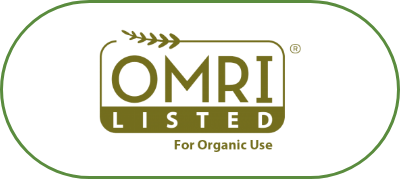If you’re planning a home vegetable garden, one of the most critical factors for success is the quality of your soil. Good soil provides the foundation for healthy plants, ensuring they receive the nutrients, water, and oxygen they need to grow strong and produce abundant harvests. Whether you’re growing in raised beds, containers, or directly in the ground, investing in high-quality soil is essential for achieving a productive vegetable garden. At Skagit Soils, we offer nutrient-rich garden soil and compost to help your vegetables thrive. In this post, we’ll explore the importance of good soil and how it can make a difference in your gardening efforts.
Why Good Soil Matters
Soil is more than just a medium for plants to grow in—it’s a living ecosystem that supports plant health and growth. The right soil composition provides a balanced environment where plant roots can easily access water, air, and nutrients. Healthy soil also promotes beneficial microbial activity, which helps break down organic matter and release nutrients that plants can absorb. Without good soil, even the most well-tended garden can struggle to produce healthy plants.
Key Characteristics of Good Garden Soil
- Nutrient-Rich: One of the primary benefits of good soil is that it contains the essential nutrients plants need to grow, such as nitrogen, phosphorus, and potassium. These nutrients support everything from root development to fruit production. If your soil lacks these nutrients, your vegetables may appear stunted or have poor yields.
- Well-Draining: Good garden soil has the right balance of particles, allowing it to drain well while retaining enough moisture to keep plants hydrated. Poorly draining soil can cause water to pool, leading to root rot and other plant diseases. On the other hand, soil that drains too quickly can leave plants without enough water.
- Proper Texture: Ideal garden soil has a loamy texture, which is a balanced mix of sand, silt, and clay. Loamy soil is loose and crumbly, making it easy for plant roots to grow and access water and nutrients. Heavy clay soil can become compacted and prevent root development, while sandy soil can drain too quickly, leaving plants thirsty.
- Rich in Organic Matter: Organic matter, such as compost, is essential for improving soil structure, water retention, and nutrient availability. Organic matter feeds the beneficial microorganisms in the soil, which break down materials and release nutrients that plants can absorb. Adding compost to your garden beds each season can boost soil health and provide long-term benefits to your vegetable crops.
How to Improve Your Soil for Vegetable Gardening
If your existing soil doesn’t meet these criteria, don’t worry! There are several ways to improve it. Start by adding organic matter, such as compost, to enrich the soil and improve its texture. At Skagit Soils, we offer high-quality compost that is perfect for boosting nutrient levels and promoting healthy plant growth. For raised beds, consider using our garden soil blend, which is specifically formulated for vegetable gardens.
You can also perform a soil test to determine the pH level and nutrient content of your soil. If necessary, amend your soil with additional nutrients or soil conditioners to create the perfect growing environment for your vegetables.
Why Choose Skagit Soils?
At Skagit Soils, we understand the importance of good soil in achieving a productive vegetable garden. Our high-quality garden soil and compost are designed to provide the perfect growing environment for all types of vegetables. Whether you’re planting tomatoes, lettuce, peppers, or root crops, we have the products you need to ensure a successful harvest.
Visit Skagit Soils today to learn more about our soil products and how they can help you grow the vegetable garden of your dreams!






